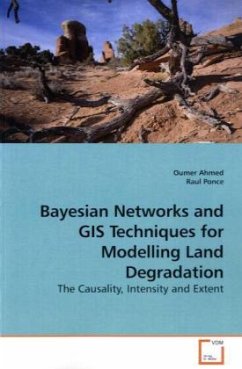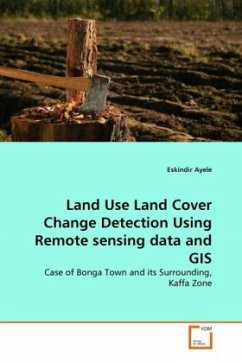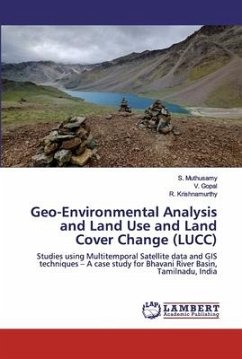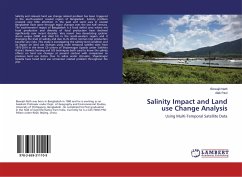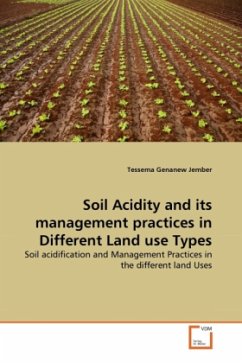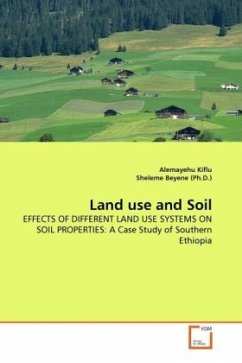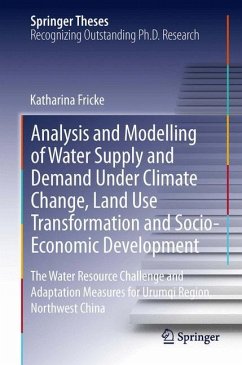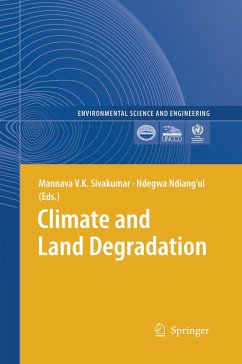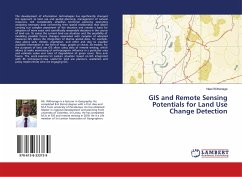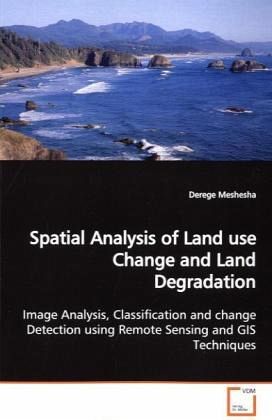
Spatial Analysis of Land use Change and Land Degradation
Image Analysis, Classification and change Detection using Remote Sensing and GIS Techniques.
Versandkostenfrei!
Versandfertig in 6-10 Tagen
43,10 €
inkl. MwSt.

PAYBACK Punkte
22 °P sammeln!
Landuse and landcover change is taken as a serious problem in changing the environment, which in turn, could lead to global climatic change and food security. This change could be the result of intricate interactions of socio economic and biophysical situation like economic, technological advancement, demography, and etc. This paper examines the changes in land use-cover types in the degraded environment of eastern Ethiopia over the last 20 years, and how such changes have influenced agricultural, local lakes and livelihoods sustainability, especially in the Alemaya district. Changes of land u...
Landuse and landcover change is taken as a serious
problem in changing the environment, which in turn,
could lead to global climatic change and food
security. This change could be the result of
intricate interactions of socio economic and
biophysical situation like economic, technological
advancement, demography, and etc. This paper
examines the changes in land use-cover types in the
degraded environment of eastern Ethiopia over the
last 20 years, and how such changes have influenced
agricultural, local lakes and livelihoods
sustainability, especially in the Alemaya district.
Changes of land use-cover were measured through
satellite image interpretations, while local
perceptions and description of change were addressed
through household interviews and field observations.
The paternal analysis of the study using GIS and
remote sensing technique, will be important
indicator and guideline for sustainable resource
utilization and management, which provides a basis
for conservation and planning. Moreover, the
methodology and approcahes used in the study will
give a guide line for other researchers, who have
similar interests.
problem in changing the environment, which in turn,
could lead to global climatic change and food
security. This change could be the result of
intricate interactions of socio economic and
biophysical situation like economic, technological
advancement, demography, and etc. This paper
examines the changes in land use-cover types in the
degraded environment of eastern Ethiopia over the
last 20 years, and how such changes have influenced
agricultural, local lakes and livelihoods
sustainability, especially in the Alemaya district.
Changes of land use-cover were measured through
satellite image interpretations, while local
perceptions and description of change were addressed
through household interviews and field observations.
The paternal analysis of the study using GIS and
remote sensing technique, will be important
indicator and guideline for sustainable resource
utilization and management, which provides a basis
for conservation and planning. Moreover, the
methodology and approcahes used in the study will
give a guide line for other researchers, who have
similar interests.



